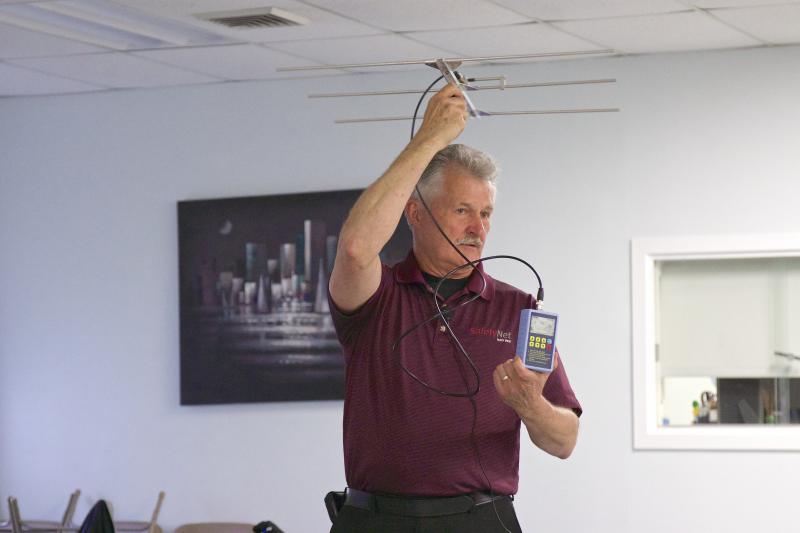Dartmouth Police urge citizens to call when loved ones go missing
In instances of missing persons, it’s important to call the police sooner than later.
That was the message of Dartmouth Police Officer Scott Affonce, who along with Officer Justin Fonseca hosted "Bringing Loved Ones Home: A Community Search and Rescue Presentation" on Tuesday at the Dartmouth Council on Aging.
There, the two walked those in attendance through several steps and pointers for what to do in the case or cases of a missing loved one.
“You’ve got to pick up the phone and call us right away,” said Affonce, a Dartmouth representative of the Southeastern Massachusetts Law Enforcement Council (S.E.M.L.E.C.) Search and Rescue team along with Fonseca.
“The average person in good health can walk two miles in an hour. If you’re waiting a half hour or 45 minutes, they’re already in Fairhaven. You’re not bothering the police at all. That’s what the townspeople are paying us for,” said Affonce.
Affonce and Fonseca joined the search and rescue team in September of 2010. The officers have been trained in urban and wilderness searches, land navigation by compass and G.P.S.
Officers Affonce and Fonseca are nationally certified by the National Association for Search and Rescue.
The S.E.M.L.E.C. Search and Rescue team consists of 35 members from 28 different communities. These officers can be called upon for missing persons and evidence searches in any of the member’s communities.
Affonce said that it’s often people with issues like Alzheimer’s disease, autism spectrum disorders and intellectual disabilities that are prone to wander.
“If somebody wanders away once, they’re going to do it again,” he said, noting that 127,000 people in the United States get lost each year, with 13,000 who are never found.
He said there are a variety of ways to keep people prone to disappearing safe, including GPS devices, cell phones and others.
Another was presented by Ralph Poland, a retired police officer and representative of Safety Net by LoJack. With the company's technology, the person prone to disappearing wears a small, lightweight bracelet or anklet that can be easily tracked through radio frequencies and is used with police across the state of Massachusetts and in Dartmouth.
“You can’t say everything is foolproof 100 percent, but so far every search and rescue has been successful,” said Poland of the over 400 cases where the product has been used.
Affonce said the Dartmouth Police force is currently working to create a database of all the people in town who have disappeared and are likely to again.
“We’re trying to document these people in our community,” said Affonce. “Someone with Alzheimer's, somebody with dementia, children with autism — when (officers) get there, they know. They know what to do and what not to do. Call us. If you find them beforehand, then that’s great.”













